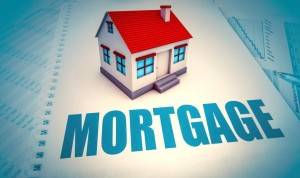Challenges
of Mortgages in Ghana
Mortgages serve as a critical pathway to
homeownership and financial stability, yet their adoption and effectiveness in
Ghana face several challenges. These obstacles stem from economic, regulatory,
and institutional constraints, making mortgages less accessible or burdensome
for potential homeowners. Below is an analysis of the key challenges associated
with mortgages in Ghana.
1. High
Interest Rates
- Explanation: Interest rates on mortgage loans in
Ghana are among the highest globally, often ranging between 20% and 30%.
These rates are driven by inflation, high borrowing costs, and the
inherent risks lenders perceive in the real estate market.
- Impact: High interest rates increase
monthly payments, making mortgages unaffordable for the average Ghanaian.
This limits the market to high-income earners and expatriates.
2. High
Initial Costs
- Down Payments: Most mortgage lenders require a
substantial down payment, typically 20-30% of the property value.
- Closing Costs: Additional fees, including legal,
processing, and valuation fees, further burden prospective homeowners.
- Impact: These upfront costs create
barriers, especially for young professionals and middle-income earners who
cannot save enough for the required payments.
3. Limited
Access to Mortgage Financing
- Restricted Credit Access: Banks and
financial institutions are hesitant to extend credit due to the high
default risk associated with long-term loans.
- Limited Lender Options: A small
number of financial institutions, such as GHL Bank and Republic Bank,
dominate the mortgage market, reducing competition and innovation.
- Impact: This lack of financing options
excludes many from the housing market, particularly informal sector workers
without steady income or credit history.
4. Land
Ownership and Registration Issues
- Land Title Disputes: Unclear
ownership and frequent disputes over land titles deter lenders from
approving mortgage loans.
- Inefficient Land Registry: The
cumbersome and often corrupt process of registering land increases delays
and costs for both lenders and borrowers.
- Impact: These systemic inefficiencies
discourage real estate investments and delay mortgage transactions.
5. Low
Public Awareness
- Limited Financial Literacy: Many
Ghanaians lack a clear understanding of how mortgages work, the associated
costs, and the long-term benefits.
- Impact: Low awareness leads to mistrust of
mortgage products and underutilization, even among eligible borrowers.
6.
Affordability Gap
- High Housing Costs: Real estate
prices in urban areas like Accra, Kumasi, and Takoradi are
disproportionately high compared to average income levels.
- Low Income Levels: The income
disparity means only a small percentage of the population qualifies for a
mortgage, leaving the majority reliant on alternative housing finance
options.
- Impact: The affordability gap exacerbates
the housing deficit in Ghana.
7.
Economic Instability
- Inflation: Fluctuating inflation rates erode
the purchasing power of borrowers, increasing the cost of living and
reducing the affordability of monthly payments.
- Currency Depreciation: The depreciation
of the Ghanaian cedi impacts lenders reliant on foreign funding, leading
to higher interest rates.
- Impact: Economic instability increases the
risk of defaults and discourages long-term lending.
8.
Regulatory Challenges
- Inconsistent Policies: Regulatory
frameworks governing mortgages are often unclear or inconsistently
enforced, creating uncertainty for lenders and borrowers.
- Tax Burdens: Despite some exemptions, taxes on
property transactions, including stamp duty, further increase costs.
- Impact: Poor regulation undermines trust in
the mortgage system and deters investment in real estate.
9. Long
Loan Tenures
- Loan Duration: Mortgage terms in Ghana often span
15-20 years, which can be daunting for borrowers.
- Impact: Long tenures increase the total
interest paid over the life of the loan, making mortgages significantly
more expensive.
10. Lack
of Secondary Mortgage Markets
- Absence of Securitization: Ghana lacks
a robust secondary mortgage market to offload mortgage risks from primary
lenders.
- Impact: Without securitization, lenders
face liquidity constraints, limiting their ability to issue new loans.
11.
Cultural and Social Factors
- Preference for Outright Purchase: Many
Ghanaians prefer saving for years to buy homes outright, avoiding debt
altogether.
- Impact: Cultural attitudes reduce demand
for mortgage products, limiting their development.
12.
Government and Institutional Constraints
- Limited Housing Policies: Government
efforts to address the housing deficit, such as affordable housing
projects, often fail to meet demand.
- Impact: Inadequate support from the public
sector leaves the private sector overwhelmed, exacerbating the housing
crisis.
Recommendations
To address these challenges, stakeholders
must adopt a multifaceted approach:
- Policy Reforms: streamline land registration
processes and enforce property rights to improve lender confidence.
- Interest Rate Reduction: stabilize
the economy to reduce borrowing costs, making mortgages more accessible.
- Public Education: Increase financial literacy
initiatives to educate Ghanaians on the benefits and mechanics of
mortgages.
- Support for Low-Income Earners: Introduce
targeted subsidies or micro-mortgages for informal sector workers and
low-income households.
- Secondary Markets: Develop a
secondary mortgage market to enhance liquidity for lenders.
Conclusion
While mortgages hold the potential to
address Ghana’s housing deficit, systemic challenges must be tackled to make
them a viable solution for the majority. Collaborative efforts from the
government, financial institutions, and private sector developers are critical
to overcoming these obstacles and promoting sustainable homeownership.


